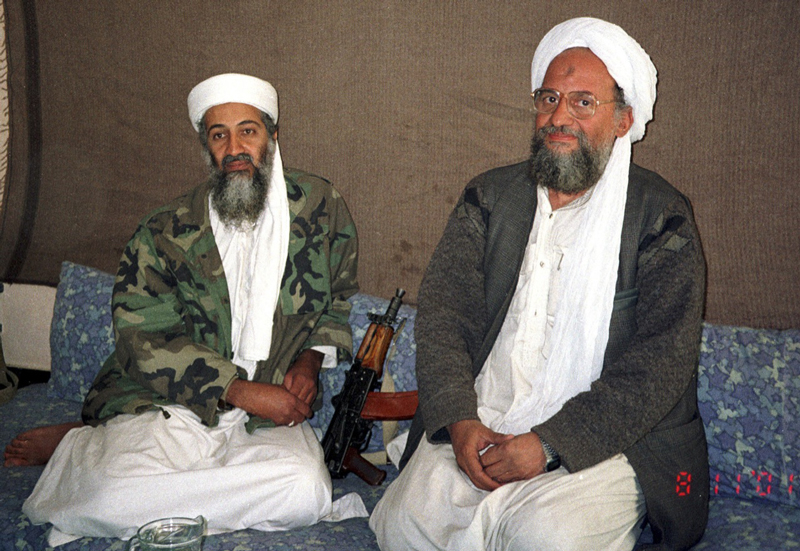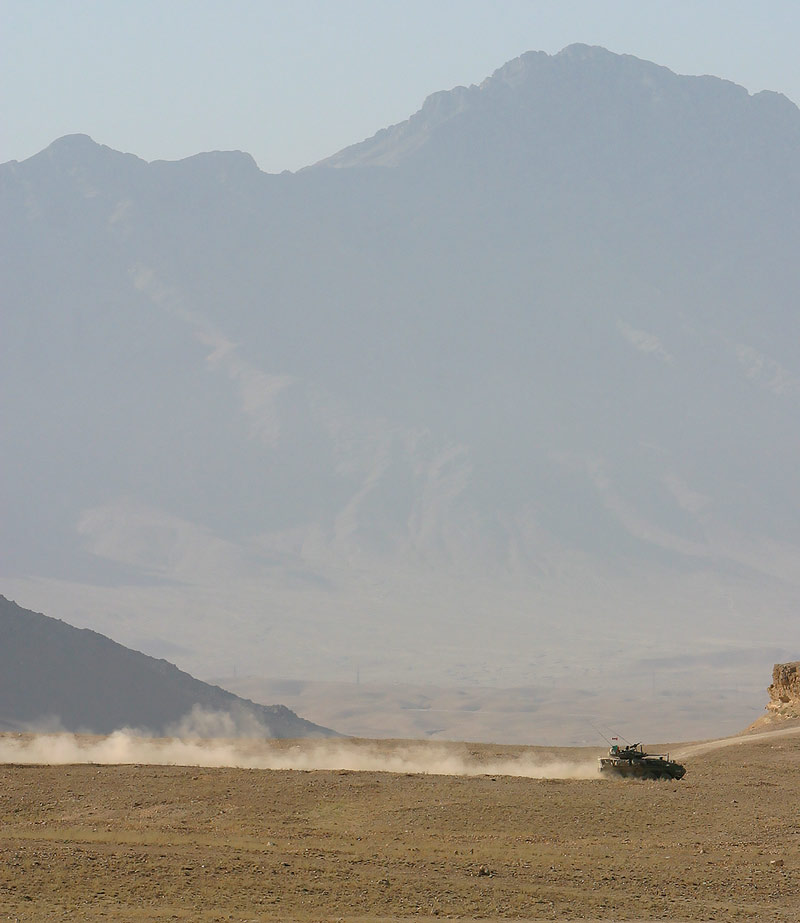
In one fell swoop, the death of Ayman al-Zawahiri, 71, one of the world’s most wanted terrorists, erased any pretense that Afghanistan’s new Taliban regime was somehow better, more credible or deserving of legitimacy than the old one.
An Egyptian surgeon, al-Zawahiri served as bin Laden’s deputy and helped co-ordinate the 9/11 attacks that claimed almost 3,000 lives in the United States nearly 21 years ago. The dead included at least 24 Canadians.
“Justice has been delivered and this terrorist leader is no more,” U.S. President Joe Biden said in an Aug. 1 address televised live from the White House. “People around the world no longer need to fear the vicious and determined killer.”
Taliban representatives had promised to sever ties with al-Qaida under a February 2020 deal they negotiated with Donald Trump’s administration. The agreement set in motion the American military’s withdrawal from Afghanistan.
The process concluded in August 2021 with the fall of Kabul to surging Taliban forces and the chaotic evacuations of thousands of desperate refugee claimants and foreign nationals.
The Taliban had pledged not to allow Afghan territory to be used to plan international terror attacks yet, less than a year after the last coalition troops left the country, al-Zawahiri was heading a global jihadi network out of Kabul.
“Ayman al-Zawahiri has issued more frequent recorded messages since” the Taliban takeover, said a recent United Nations report—eight of them, in fact, and more may be released posthumously.
“Member State assessments thus far suggest that Al-Qaida has a safe haven under the Taliban and increased freedom of action.”
The overriding perception is that Afghanistan’s new regime and the Taliban itself are rife with internal divisions.
Unmanned aerial vehicles run by the CIA and the U.S. military had been documenting al-Zawahiri’s movements since at least February 2022. The April report by the UN committee charged with enforcing sanctions on the Taliban noted that al-Qaida had renewed its pledge of allegiance to the group. The 27-page document confirmed the relationship between the two “remains close.”
“Assessments of Taliban appointments since [the Taliban takeover] suggest that 41 United Nations-sanctioned Taliban individuals now hold de facto cabinet and senior-level positions in the new de facto administration,” said the UN.
“There has been little discernible change in the behaviour of the Taliban, with many Member States observing that they are, in large part, the same Taliban movement that was deposed in 2001.”
UN members have subsequently observed a Taliban “propensity to reverse policies and go back on promises made prior to assuming power.”
The committee report cited onerous restrictions on girls’ education as one example; the banning of foreign media channels another.
“Similarly, while promising to form an inclusive government, the Taliban have resisted pressure to implement any system of power-sharing. Consequently, the de facto administration remains overwhelmingly Taliban and Pashtun.”
The overriding perception is that Afghanistan’s new regime and the Taliban itself are rife with internal divisions. The administration is widely believed to be “chaotic, disjointed and prone to reversing policies and going back on promises.”
The Taliban’s supreme leader, Hibatullah Akhundzada, is apparently living in Kandahar, the movement’s birthplace, and has reportedly become less open to deliberating with other Taliban leaders he had previously consulted regularly.
Among those with whom he does communicate, he is said to have become more autocratic and dismissive of dissent.
Hibatullah’s predecessors, mullahs Omar and Mansour, followed a similar path, at first ruling by broad consensus before gradually moving toward more dictatorial approaches. The UN said Mullah Omar made the transition over two to three years; it took Hibatullah just a few months.
The report said the Taliban leader is under tight security, his location kept secret by minimizing the use of mobile phones, limiting personal engagements and conducting communications mainly by remote courier and hand-written message.
“Al-Qaida is pleased with developments in Afghanistan, which it anticipated for over 20 years,” said the UN report. “The group quickly framed the Taliban takeover as a collateral triumph for Al-Qaida.
“On 31 August, one day after the last United States troops had left Afghanistan, Al-Qaida celebrated the Taliban’s perseverance and highlighted historical links between the groups. It further seized the opportunity to renew its allegiance to Hibatullah Akhundzada as ‘leader of the faithful.’”
The report said the terrorist organization has used the Taliban takeover to attract new recruits, raise money and inspire al-Qaida affiliates globally.
“Previously, while the group was obliged to seek new safe havens, it was believed to have a continued presence in Afghanistan. Under the Taliban, Afghanistan is viewed as a friendly environment for continued occupancy.”
The report said al-Qaida has greater freedom under the new Afghan regime, but its operational capabilities are limited so far to advice and support to the Taliban. It said the organization is unlikely to mount or direct attacks outside Afghanistan “for the next year or two.”
This is owing to both a lack of capability and Taliban restraint, said the UN commissioners. “Member States remain concerned that it will regenerate that capability and that the Taliban commitment to restrain it is uncertain in the medium-to-longer term.
“Going forward, Al-Qaida appears free to pursue its objectives, short of international attacks or other high-profile activity that could embarrass the Taliban or harm their interests.”
Its focus is likely on reorganizing itself in the short-to-medium term with the ultimate objective of continuing global jihad. The report said al-Qaida will recruit, train, fundraise and distribute remaining al-Zawahiri videos.
“While Al-Qaida is reportedly aware of the need to avoid embarrassing the Taliban, it is noteworthy that when Taliban authorities were pressing to receive humanitarian support from the United Nations, Al-Qaida did not soften its tone regarding the United Nations or its future intentions to mount attacks against Western targets.”
In a video released in November 2021, al-Zawahiri described the UN as “an enemy of Islam.” In his most recent video, he referenced the Russian invasion of Ukraine, blaming “U.S. weakness” for the war. “Here [the U.S.] is after its defeat in Iraq and Afghanistan, after the economic disasters caused by the 9/11 invasions, after the corona pandemic, and after it left its ally Ukraine as prey for the Russians,” he said.
“Al-Qaida appears free to pursue its objectives, short of international attacks or other high-profile activity that could embarrass the Taliban.”
In February 2022, al-Qaida conveyed its close links to the Taliban in print, advising the new leaders of Afghanistan to become a regional military power and promising to carry out attacks against the West—though they took care to note that such attacks would emanate from places other than Afghanistan.
Said the report: “The Taliban victory in Afghanistan has inspired terrorists around the world, although the relocation of foreign terrorist fighters to Afghanistan has not materialized in significant numbers.”
The Taliban insist there are no foreign terrorist fighters in Afghanistan, yet a multitude of terrorist groups have taken up residence in the country since the Taliban takeover, the Pakistani Taliban, known as TTP, the largest among them.
TTP numbers are estimated at 3,000-4,000 along the Afghan-Pakistan border. They have conducted numerous attacks and operations in Pakistan.
“TTP also continues to exist as a stand-alone force, rather than feeling pressure to merge its fighters into Afghan Taliban units, as is the prospect for most foreign terrorist fighters.”
Jaish-e-Mohammed, a Pakistan-based jihadist group with close ideological ties to the Taliban, reportedly maintains eight training camps in Nangarhar, Afghanistan, three of them directly under Taliban control.
Other groups harbouring hundreds of fighters apiece in Afghanistan include Jamaat Ansarullah out of Tajikistan, the Eastern Turkistan Islamic Movement, the Islamic Movement of Uzbekistan, the al-Qaida-linked Jamaat Ansarullah from Tajikistan, and Lashkar-e-Taiba, or “Army of the Righteous,” an India/Pakistan-centric Sunni group once funded by bin Laden.
“The Taliban are believed to have forced some foreign terrorist fighters to disarm or have relocated others away from the capital so that they remain inconspicuous,” the commissioners wrote.
“Foreign terrorist fighters are viewed by the Taliban primarily as ‘brothers in faith.’”
The UN report said central Asian embassies based in Afghanistan “reported with concern the appearance of several leaders of foreign terrorist groups apparently moving freely around Kabul from August onwards.”
ISIS, or ISIL-K, a sworn enemy of both the Taliban and al-Qaida, continues to operate in parts of Afghanistan, though the UN says an “intense” ISIL-K campaign against the Taliban early in its rule faded by December.
The report notes that the Taliban have a lengthy association with the production and sale of opium poppy and other drug-related activity.
The United Nations Office on Drugs and Crime report on opiate production—including opium, morphine and heroin—and the expanding manufacture of methamphetamines, notes that opiate production remained the country’s largest illegal economic activity in 2021, worth an estimated US$1.8-$2.7 billion.

The 9/11 attacks engineered by bin Laden and his cohorts sparked a war that lasted almost 20 years and cost coalition forces 3,502 lives.
An unnamed senior Taliban leader told Reuters that al-Zawahiri moved to a “very safe place” in Kabul a few months after the Taliban took control of Afghanistan. A spate of videos, his first in years, followed.
Biden ordered the drone strike at a meeting of key cabinet members and national security officials on July 25. The attack took place five days later, at 9:38 p.m. eastern time.
“Two Hellfire missiles were fired at Ayman al-Zawahiri, who was killed,” a senior administration official told The Guardian newspaper. “We are confident through our intelligence sources and methods, including multiple streams of intelligence, that we killed al-Zawahiri and no other individual.”
Members of his family were elsewhere in the house of the attack by modified hellfires designed to limit unintended casualties. They were not targeted nor, apparently, harmed. “We took every possible precaution to avoid civilian harm.”
The official said American officials watched Taliban members try to conceal evidence of al-Zawahiri’s former presence at the location as they blocked access to the area and swiftly relocated his wife and his daughter and her children.
A Taliban statement confirmed a strike took place and strongly condemned it, calling it a violation of “international principles.”
The 9/11 attacks engineered by bin Laden and his cohorts sparked a war that lasted almost 20 years and cost coalition forces 3,502 lives. Canada withdrew the last of its forces in 2014 after losing 158 killed and thousands wounded.
al-Zawahiri’s death came just shy of 11 years and three months after U.S. Navy SEALs took out bin Laden at a compound where he had been hiding in Abbottabad, Pakistan. Biden was Barack Obama’s vice-president at the time.
Said Biden: “We make it clear again tonight that no matter how long it takes, no matter where you hide, if you are a threat to our people, the United States will find you and take you out. We will never forget.”
Advertisement












